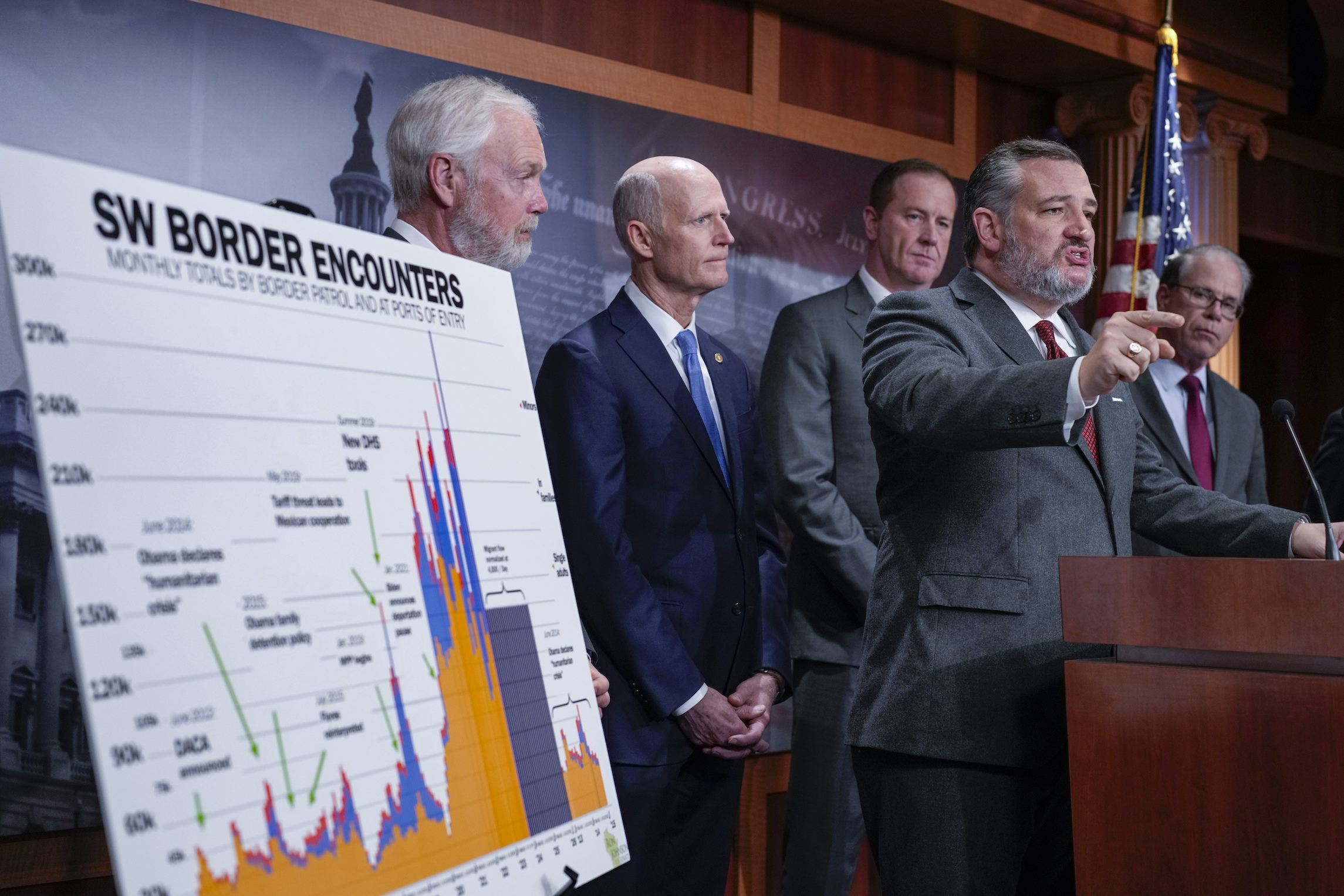

To get a feel for why the Senate’s bipartisan border proposal is a nonstarter for so many House Republicans, turn to a dissenting GOP senator.
Sen. Marco Rubio (R-FL) penned an op-ed saying a bipartisan deal is “unrealistic” under President Joe Biden, whom Rubio contends has given “no indication of being serious” on the issue.
Rubio was a member of the Gang of Eight, the last group of bipartisan senators to push an immigration pact under former President Barack Obama.
That legislation was far more sweeping than anything proposed by Sen. James Lankford (R-OK) and friends. It also upended the 2016 Republican presidential race, helping to sink Rubio’s campaign and allow a reality TV star to run as the base’s champion on immigration.
ELECTION 2024: FOLLOW LATEST COVERAGE
Former President Donald Trump is still winning Republican voters whose top issue is immigration and the border, according to exit and entrance polls from the first two states to vote in the 2024 GOP nomination contest.
But the basic divide at play within the GOP was evident before Trump or Biden were elected. Senate Republicans have negotiated with their Democratic colleagues to trade border security measures for some degree of immigration liberalization or leniency toward illegal immigrants. House Republicans have balked at these bills dating back to when George W. Bush was president.
Many of the names behind these bills are long gone: Ted Kennedy and John McCain, Chuck Hagel and Mel Martinez, Harry Reid and Jon Kyl.
A few consistent boosters of such legislation remain: Sens. Dick Durbin (D-IL) and Lindsey Graham (R-SC) are chief among them.
While these negotiations were all bipartisan, they also uniformly involved members of both parties who generally agreed about immigration policy.
Rank-and-file Republican discontent with the basic framework of border security plus immigration liberalization dates all the way to when Ronald Reagan, a conservative icon, signed into law a bipartisan immigration amnesty in 1986.
Many Republicans felt short-changed by the trade-offs involved, arguing that the amnesty was permanent and the commitment to enforcement proved short-lived. In any event, illegal immigration continued to increase, as did its salience as a political issue throughout the 1990s.
So did the number of potential beneficiaries for future immigration legalization programs: from the 3 million covered by the 1986 law to the 8 million to 12 million people estimated to need their status adjusted by various Bush-era proposals.
Obama tried to build credibility on immigration enforcement and therefore bipartisan support for proposals like the Gang of Eight bill by stepping up deportations. It didn’t work. Activists on the Left decried him as the “deporter-in-chief,” while some analyses cast doubt on the administration’s exact deportation figures.
In the end, Obama won few Republican converts to his preferred immigration solutions while his own progressive base made a prolonged commitment to increased enforcement politically unsustainable.
A decade later, Biden attempted to placate some of these voices on the Left from the beginning of his administration. He called Obama’s deportations “a big mistake” during the 2020 campaign and reversed a series of Trump immigration policies quickly upon assuming office.
Biden then presided over a border crisis for his whole term and has even less credibility on the issue, for which he receives some of his lowest marks in public opinion polls.
In addition to the question of credibility, there is also a fundamental policy difference over whether immigration liberalization actually relieves pressure on the border or does more to incentivize further illegal immigration.
Even the perception of a more permissive policy can have a meaningful impact, as Biden’s original southwest border coordinator appeared to acknowledge at a March 2021 White House briefing.
CLICK HERE TO READ MORE FROM THE WASHINGTON EXAMINER
“Surges tend to respond to hope, and there was a significant hope for a more humane policy after four years of, you know, pent-up demand,” Ambassador Roberta Jacobson told reporters. “So I don’t know whether I would call that a coincidence, but I certainly think that the idea that a more humane policy would be in place may have driven people to make that decision.”
Biden and Trump may have different political incentives concerning the border ahead of what looks increasingly likely to be a presidential race rematch. But the underlying disagreements over how to approach this issue, now going back decades, remain in effect as well.





